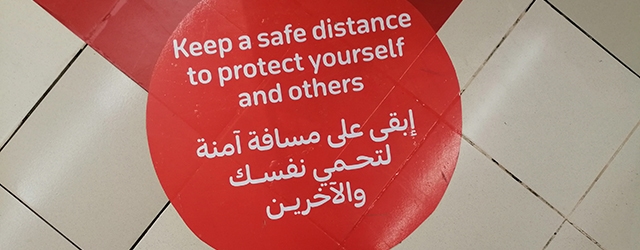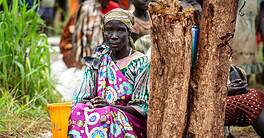Facing an economic crisis, GCC banks are looking to tech transformation and bracing for a second wave of mergers.

Hit by historically low oil prices and the economic fallout from the Covid-19 pandemic, oil-producing Gulf countries are facing their worst recession ever. Overall GDP is expected to contract this year between 4% and 6%. Aggregated deficits could reach 10.3% in 2020 compared to 2.5% in 2019, according to the Institute of International Finance.
With lockdown measures and the sudden drop in oil revenue constituting a perfect storm for the regional economy, sectors including real estate, air travel, hospitality and tourism are struggling to stay alive. Hundreds of companies and millions of jobs are at stake. To avoid a massive wave of bankruptcies, Gulf Cooperation Council governments have rolled out heavy fiscal adjustment plans and monetary stimulus packages.
So far, fiscal measures average 3.8% of GDP ($30.6 billion), and liquidity support amounts to 2% of GDP ($41 billion) across all GCC countries. Central banks are trying to give breathing space to institutions, allowing them to extend loans to corporates and small to medium-size enterprises (SMEs) suffering the most from the drop in consumer spending.
Overall, the GCC banking system remains solid, however. Gulf lenders are among the most profitable in the world, bolstered by a mix of good liquidity, strong capitalization, low levels of nonperforming loans and a large proportion of non-interest-bearing deposits. At the end of 2019, average return on assets for rated GCC banks was 1.5%, compared to 0.6% in developed markets, 0.4% in the eurozone and 1.1% in emerging markets.
“GCC banks are well capitalized and regulated, which should allow them to withstand the shock,” says Asad Ahmed, managing director at consulting firm Alvarez & Marsal in Dubai. According to a recent study by S&P Ratings, rated GCC banks could absorb losses up to $36 billion—three times the sector’s average normalized losses—before moving into the red.
“Assuming this is a temporary hit with a gradual recovery in 2021, this is going to be a shock to profitability but not to the capital,” says Mohamed Damak, senior director at S&P Global Ratings. “Banks will be less profitable, but they will not deplete their capital resources.”
S&P research indicates that Kuwaiti banks are the best positioned in the region to absorb losses, followed by Qatar, the United Arab Emirates and Saudi Arabia. Bahrain and Oman are the most vulnerable due to the weaker capacity of their governments to sustain the banking sector and the overall economy.
Despite significant stimulus packages, rating agencies expect GCC banks’ credit profiles to deteriorate. “Capital and liquidity buffers should protect viability ratings in the short term,” Fitch Ratings reported in March, “but if operating conditions remain difficult for a prolonged period, downgrades are likely, especially for banks with weaker capital buffers. Smaller banks are generally more vulnerable, as they have weaker franchises, thinner capital buffers and lower revenue generation and diversification.”
Digitize and Consolidate
The crisis could change the face of the GCC banking industry. In the past few decades, banking expanded in the region thanks to generous government deposits backed by hydrocarbon revenues. As a result, the region is highly overbanked, and lenders are forced to rethink their strategies, spend wisely and scale efficiently.
“Amid a crisis of unprecedented magnitude, such as Covid-19, we can confidently anticipate that financial institutions in the GCC are looking to reshape their operations and emerge stronger from this downturn following the abatement of the pandemic,” says Rola Abu Manneh, CEO of Standard Chartered Bank UAE.
In the struggle for survival, new technologies are emerging as a major game changer. Banks that invested in fintech solutions over the past few years and were able to switch from branch banking to digital platforms during the Covid-19 lockdown are ahead in the race.
“We made a significant investment in recent years in the bank’s digital platform and systems infrastructure,” says Shayne Nelson, Group CEO of Emirates NBD. “This enabled us to provide an uninterrupted banking service to our customers despite the disruption caused by Covid-19. I firmly believe that our digital leadership gives us a competitive edge over peers and allows us to respond swiftly to the changing banking needs of our customers.”
But innovation requires investment, and for smaller banks whose profit margins are already tight, this is not always an option. To remain relevant in an increasingly challenging environment, many lenders are exploring mergers and acquisitions.
The sector has been through this before. Following the 2014 drop in oil prices, national banking giants consolidated through mergers in the UAE, Saudi Arabia, Kuwait, Qatar, Bahrain and Oman.
A second wave could be on the way. “Conversations are happening right now,” says Alvarez & Marsal’s Ahmed. “It will be helpful from a regulatory perspective and will create more resilience for the banking sector.”
Likely candidates include Oman Arab Bank and Alizz Islamic Bank, approved by the Central Bank of Oman in mid-April, as well as lenders in Bahrain, the region’s most overbanked country with more than 100 lenders serving fewer than two million people. Talks are already underway between Bahrain Islamic Bank and National Bank of Bahrain.
“Upcoming mergers and acquisitions will be very much driven by an economic vision,” says S&P’s Damak. In earlier waves, the merging entities usually had the same owners; consolidation was driven by shareholders reorganizing their assets rather than by an economic rationale, close observers say. That might no longer be the case, as banks feel the pressure to cut costs, close nonessential physical branches, invest in digital, acquire new clients and scale up in new territories.
Expanding Horizons
Most GCC banks do business within their national borders; very few banks have an international presence, and so far the only cross-border merger pending is Kuwait Finance House’s $8.8 billion agreement to purchase Bahraini Ahli United Bank. The deal was to be finalized early this year, but has been postponed until year-end due to the Covid-19 crisis. The merger will make KFH Kuwait’s largest bank and allow it to extend operations in Egypt, Libya, Iraq, the UAE and Oman, where AUB already has a presence.
As the dust settles, however, the next wave of consolidation could allow other GCC lenders to grow outside their national borders and explore fast-growing markets in the Middle East, Asia and Africa.
“While we understand the current market dynamic in light of the Covid-19 pandemic, we see long-term opportunity in expanding our geographical footprint,” says Ahmed Abdelaal, CEO of Mashreq Bank, the UAE’s largest private bank. As of summer 2020, Mashreq Bank has branches and offices in nine Arab and Asian countries. “The two that are receiving the most focus for growth are Egypt and India,” he says.
While local players are eager to see the world, governments are also broadening their perspective, looking to attract international institutions to the region. In the past couple of years, the UAE and Saudi Arabia, among others, have loosened legislation on foreign ownership of banks.
“Foreign ownership of banks has been facilitated in recent years to make foreign investment more comfortable,” says Abdelaal. “It seems that local lenders are open to foreign banks coming in as partners. That is a good sign because it would bring GCC banks more into the global economy, give them access to other markets, new technologies.”
While GCC banking has sufficient buffers to withstand the current crisis without too much damage, large lenders could seize this is an important opportunity to shape up and scale.



